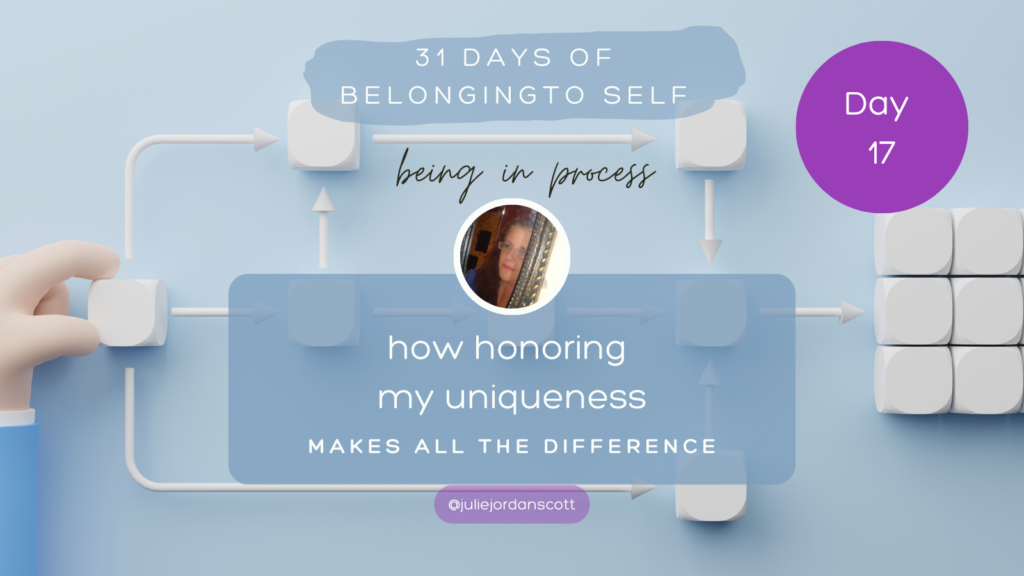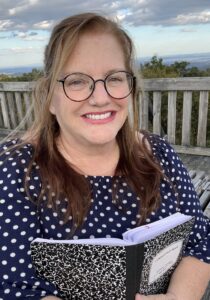
This morning I wrote a mish-mash of notes and I decided to share them here because sometimes the growth towards belonging includes a lot of messy, cluttered, uncomfortable thoughts and examination that doesn’t fit nicely into carefully curated containers.
Last night I forced myself to write a poem about what happened after my mother died and I experienced an episode of extreme anti-belonging. The antithesis of belonging. Another variation of not being seen, not being heard and as a result, being left out of the services for my mother.
I really didn’t even want to write that here.
I didn’t want to put it in black and white.
I wanted to sidle into that reality sideways, not telling the whole truth and instead leave context clues but my fingers on the keyboard forced me further.
Last night I forced myself to write a poem of the extreme pain of the aftermath.
I wrote a sentence and then wrote a poem using the words of the sentence as the beginning of the poem.
I found it difficult to finish. It most likely won’t be shared, but there is a high value in the process of shaping those words meaningfully.
Sometimes belonging to myself means guiding myself down a cragging unsettled path, like when I walk on the rockiest parts of the trail. The trail hurts my feet and my ankles as I balance and move slowly, methodically, my eyes on the ground to steady myself. I wonder in these moments why do I proclaim how much I like to hike?
Who cares about hiking and healing and belonging if it feels this tortuous to get here?
Sometimes belonging means I must do the things I want/don’t want to do.I must face the most painful aspects of my stories.
Slowly and methodically I am picking up the pieces of grief and examining them and in order to do that, I need to dust and vacuum away the aftermath – the pain I experienced after Mom died, indirectly as a result of Mom’s death that was and wasn’t about Mom’s death.
The pain is an echo of my core life stories that have caused me the majority of my sadness, my off-and-on-again relationship with depression and the internal battles I have fought for decades.
In order to heal the pain, I need to give myself room to examine it with not only love and compassion and hope. I need to allow the red hot coals of anger to be at the metaphorical table, too. Tthe difference is, perhaps for the first time only. I am recognizing anger directed toward the outside instead of deflecting anger back into myself – which is what reflects the adage from Sigmund Freud, “Depression is anger turned inward.”
In reading an article from Downtown Somatic Therapy’s blog post, I read “love” and “anger” in the same breath. Anger is love? Anger has a component of love?
For now, at this stage, I am going to engage with anger and let it help me find my way into a deeper sense of belonging to and with and for myself.
Even as I write this, I brace myself for people who will say some variation of “get over yourself and move along” but what is vulnerability if not knowing people may not understand the value of the work and the healing I am doing and going forward, anyway? Isn’t this an example of belonging as opposed to fitting in?
Julie JordanScott is a Creative Life Coach, an award-winning storyteller, actor and poet whose photos and mixed media art graces the walls of collectors across the United States. Her writing has appeared on the New York Times Best Sellers List, the Amazon best sellers list and on American Greetings Holiday cards (and other greeting cards). She currently lives in a manse in Sussex, NJ, where she has recently finished her most recent book project, hugging trees daily and enjoys having random inspirational conversations with strangers.
Follow on Instagram to Watch exclusive reels, videos, stories and posts about writing and the creative process.
Let our Words Flow Writing Community: the only one missing is you! Join us in the Private Writing Group

What a beautiful comparison of grief, healing and self-discovery to a beautiful hike that is full of rocks and obstacles that you need to navigate. It has been 6 years since my father passed and there are still days that come that I feel as if I’m walking such a path. Thank you for being brave and sharing this.
my mother died suddenly in 1981 when I was just 31 years old. It took me about seven years to heal my grief because I could not acknowledge the suppressed anger I had towards her. She was my mother, I loved her desperately so how could I be angry with her? This was not the typical anger over the fact she had left me. This was anger from childhood. Anger having to do with having a great deal of responsibility dumped on me starting around age 11 when I became old enough to babysit my siblings. Anger that I had entirely directed at my step dad. It took almost seven years of self destructive behavior before I was finally able to acknowledge my feelings & all of this was complicated by my husbands stoic attitude (he was half Mexican) & belief I shouldn’t “wallow” in my emotions but get up & move on with life, which meant grieving at all was a challenge, especially with two young children. People who have never lost someone close have no idea about the complicated emotions that can result from that loss .
Well, it’s easy for other pople to say things like “get over it” and “move on”, but you will do so at your own pace, and there will be setbacks. Just don’t give up on yourself. You deserve to laugh, be silly and joyful!
If anyone tells you to get over yourself – friend, family or foe – I say, show them the door! Imo, you are doing amazing work!! I was watching a video today, where the teacher of a class I took was talking about the elements and specifically, water. She said that the high road is keeping your heart open, no matter what, and offering forgiveness when you can, but it doesn’t mean not getting angry, and it doesn’t mean you have to invite them over for tea. They don’t have to be part of your life if it is clear that they are going to hurt you.
Julie, I certainly appreciate your honesty and willingness to share vulnerability.
My mom died in 2002 and my major emotion for over a year was anger because she had not been honest about how bad her cancer had become and as a result her five kids were cheated out of time we could have spent with her at the end.
We each deal with life circumstances in our own particular ways and no one else has a right to say how we doit and how we feel. Just be yourself.
My dear, I believe we never get over the death of a loved one, we just learn how to deal with it. My grandfather has been gone for 30 years, my father almost 20, and my mother 13 years. It is my understanding that we are all connected, that help me get through.